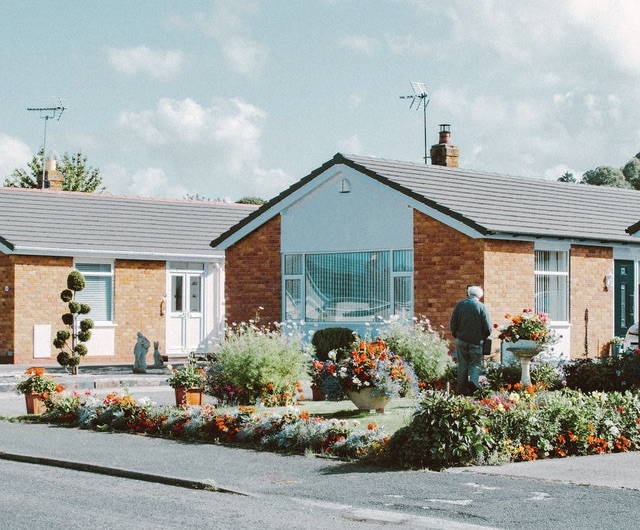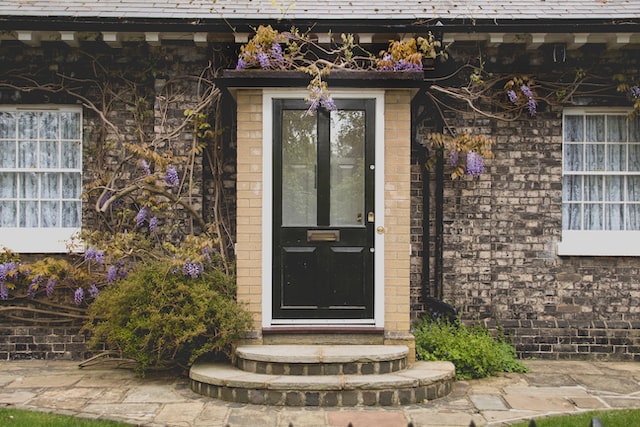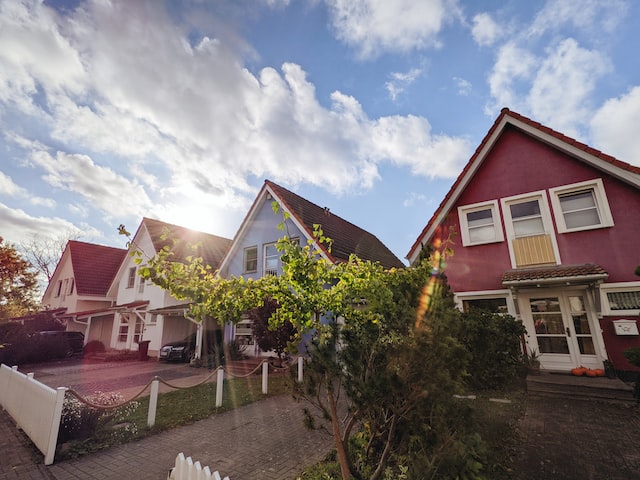You must first complete 75 hours of pre-licensing real estate courses, pass the real estate salesperson test, and register with the New Jersey Real Estate Commission in order to become a real estate agent in New Jersey. This is the governing organization in charge of issuing real estate salesperson and broker licenses as well as regulating the industry.
This is the resource for you if you want to learn more about how to become a real estate agent in New Jersey. You’ll not only learn about the steps to becoming a real estate agent and broker, but you’ll also get other useful information in this post. Let’s explore together with RealEstate-Prep now!
What Is A Real Estate Agent?
A licensed professional who represents buyers or sellers in real estate transactions is known as a real estate agent. They understand the local real estate market, property valuations, and the purchasing and selling procedure. Real estate brokers help customers with a variety of tasks such as property searches, negotiations, contracts, and paperwork. They frequently give advice, market research, and experience to assist clients in making educated decisions. Agents can operate alone or as part of a real estate firm, collecting commissions depending on transaction success. They play an important role in arranging seamless transactions and ensuring their customers’ best interests are satisfied.
How To Become A Real Estate Agent In New Jersey – 7 Steps

The following steps will walk you through the process of obtaining your New Jersey Real Estate License in an easy-to-follow, step-by-step manner.
Step 1: Ensure that you meet the qualifying requirements
- American citizen or lawfully admitted immigrant
- You must be over the age of 18 to participate.
- Have a valid Social Security Number
- A high school diploma or its equivalent is required.
Step 2: Attend your pre-licensing education
A 75-hour course covering various real estate fundamentals is necessary. It can only be obtained from a licensed education provider.
The course will cover New Jersey License Law, New Jersey Real Estate Commission Rules, Agency Law, and Fair Housing Laws. Real estate mathematics, valuation ideas, and mortgage computations will be covered as well.
The majority of people opt to complete their pre-license education online. The majority of self-paced online courses contain study tools such as real estate practice examinations and flashcards. Some even offer a “guarantee” that if you complete their course, you will pass the test on your first try. All of these advantages are dependent on the education provider and package you select, so be sure you enroll in the course that best meets your needs. Let’s get started with our free Real Estate practice exam and strengthen your knowledge and skills.
The final pre-license test is not required to be proctored in New Jersey. This is not the same as the state examination. This exam, administered by your pre-license education provider, verifies that you have finished and retained the content of your pre-license education course.
Like the state test, this exam is closed-book and closed-note. You are permitted to bring a basic-function calculator and scratch paper, but no mobile phones or internet access from outside the facility.
Read more>> How To Become A Real Estate Agent In Georgia
Step 3: In New Jersey, you must pass the Real Estate Salesperson examination
There are 110 questions on the New Jersey Real Estate Salesperson Exam. You’ll have four hours to write it, and a 70% score is necessary to pass.
Its purpose is to assess your understanding of real estate issues taught in the pre-licensing course and conducted by PSI Services. To register, you must fill out their exam registration form and provide the necessary documentation. There is also a $45 examination charge that may be paid with a credit card.
The New Jersey Real Estate Salesperson Exam consists of 110 questions. You’ll have four hours to complete it, and a 70% is required to pass.
Its objective is to examine your knowledge of real estate topics covered in the pre-licensing course and administered by PSI Services. To register, fill out their exam registration form and provide the required paperwork. In addition, there is a $45 examination fee that may be paid with a credit card.
Step 4: Conduct a background check
The NJ Real Estate Commission will perform a background check on all real estate license applicants to protect the public interest. To do so, make an appointment with an approved vendor to have a fingerprinting process (Live Scan) performed.
This will be used to search the FBI’s criminal history database.
According to the NJ Real Estate Commission’s website, you must complete the fingerprinting procedure as soon as you pass the exam. To demonstrate that you have completed the procedure, you must provide the following evidence:
- New Jersey Universal Fingerprint Form
- IDEMIA, the Live Scan fingerprint vendor, produced a payment receipt.
Step 5: Contact a qualified real estate broker in New Jersey
To conduct any real estate activity, you must work with a real estate broker who will sponsor your license.
Many people choose a real estate business based simply on the commission split, but there are other factors to consider.
For example, what type of training will they provide? Will they train you how to discover and close qualified leads? Do you have access to a co-working space? Is the brokerage capable of providing you with adequate administrative and marketing assistance? Will they give you leads to pursue? Do they employ cutting-edge technology to improve day-to-day operations (e.g., CRM, software subscription)?
Therefor, finding a skilled trainer at the outset of your real estate career is crucial.
Step 6: Apply for a real estate license with the New Jersey Real Estate Commission

A sponsoring real estate broker is required to apply for the license. The licensing cost, application fee, and guaranty fund are all included in the $160 charge. The Online Licensing Services can help you with this.
Step 7: Keep your real estate license updated
Every two years, you must renew your driver’s license. All New Jersey real estate salespeople must complete 12 credit hours of CE courses, with at least six of them covering the fundamental topics, in addition to the renewal application. The following are the main topics:
The following are the main topics:
- Disclosure
- Legal Issues (i.e. listing agreements, contracts, leases, attorney review)
- The code of ethics (2 credit hours mandatory)
- New Jersey’s Against Discrimination Law and Fair Housing (1 credit hour mandatory)
- Statutes and Regulations for Real Estate Brokers and Salespersons in New Jersey
- Real Estate Environmental Laws and Regulations at the State and Federal Level
- Escrow Monies and Financial Recordkeeping: Legal Requirements
- Safety for Real Estate Licensees
- Financial Planning and Financial Literacy in Real Estate
The remaining 6 credits might be elective coursework; a list of permitted elective topics can be seen below.
- Commercial Real Estate
- Property Management
- Seasonal Rentals
- Real Estate Sales Full Disclosure Act and Real Estate Timeshare Act
- Financing
- Land Use
- Real Estate Valuation
- Foreclosure and Short-Sale Transactions
- Residential Real Estate Transactions: Specific Aspects
FAQs – How To Become A Real Estate In New Jersey

Is there a state-to-state reciprocity agreement between New Jersey and other states?
Other states do not have reciprocity with New Jersey. You cannot do business in New Jersey if you are a real estate agent or broker from another state.
Is it possible to attend pre-licensing classes online?
Online real estate pre-licensing courses are not authorized in New Jersey. You’ll need to pick a school and set up in-person lessons. You can, however, enroll in an online exam preparation course.
Is the New Jersey real estate exam difficult?
The New Jersey Real Estate Salesperson Exam has a 70 percent pass rate. This test is designed to be challenging, but not impossible. Make sure you pay attention in your pre-license class, study diligently and make sure you familiarize yourself with the test format using NJ real estate practice exam. We are confident that if you put up the necessary effort, you will pass on your first attempt!
In New Jersey, how long does it take to obtain an insurance license?
Pre-licensing education and test preparation are the two phases that take the most time while earning your license. People typically take 3-6 months to complete a project from start to completion.
If you devote a full-time schedule to this process and study hard, you may be able to complete it in as little as two months. We wouldn’t advise going any faster than this. Take your time studying and getting ready for the exam.
How much does it cost to receive a real estate license in New Jersey?
You must pay a $45.00 test charge, a $66.05 fingerprinting fee, and a $160 salesperson fee to obtain your New Jersey real estate license.
How to obtain a commercial real estate license in New Jersey?
A regular Salesperson or Broker license is all that is required to market commercial real estate in New Jersey. In the United States, there is no such thing as a “business real estate license.”
Choose a broker that specializes in the sorts of deals you want to be a part of if you want to pursue a career selling commercial real estate.
Read more>> Real Estate Study Guide
Conclusion
Now that you know how to become a real estate agent in New Jersey. The processes for obtaining a real estate license in New Jersey are simple. You just need to enroll in pre-licensing classes, pass the real estate license test, pick a sponsoring broker, get your fingerprints taken, and submit your application if you are eligible to be a real estate agent in New Jersey. If you’re interested in a career in real estate, this may be the first step toward it.
You should be able to pass the exam if you work hard and take the courses properly. Our Real Estate Exam prep, on the other hand, is recommended if you want to save time and energy and use tools that will help you study quicker and more effortlessly.



